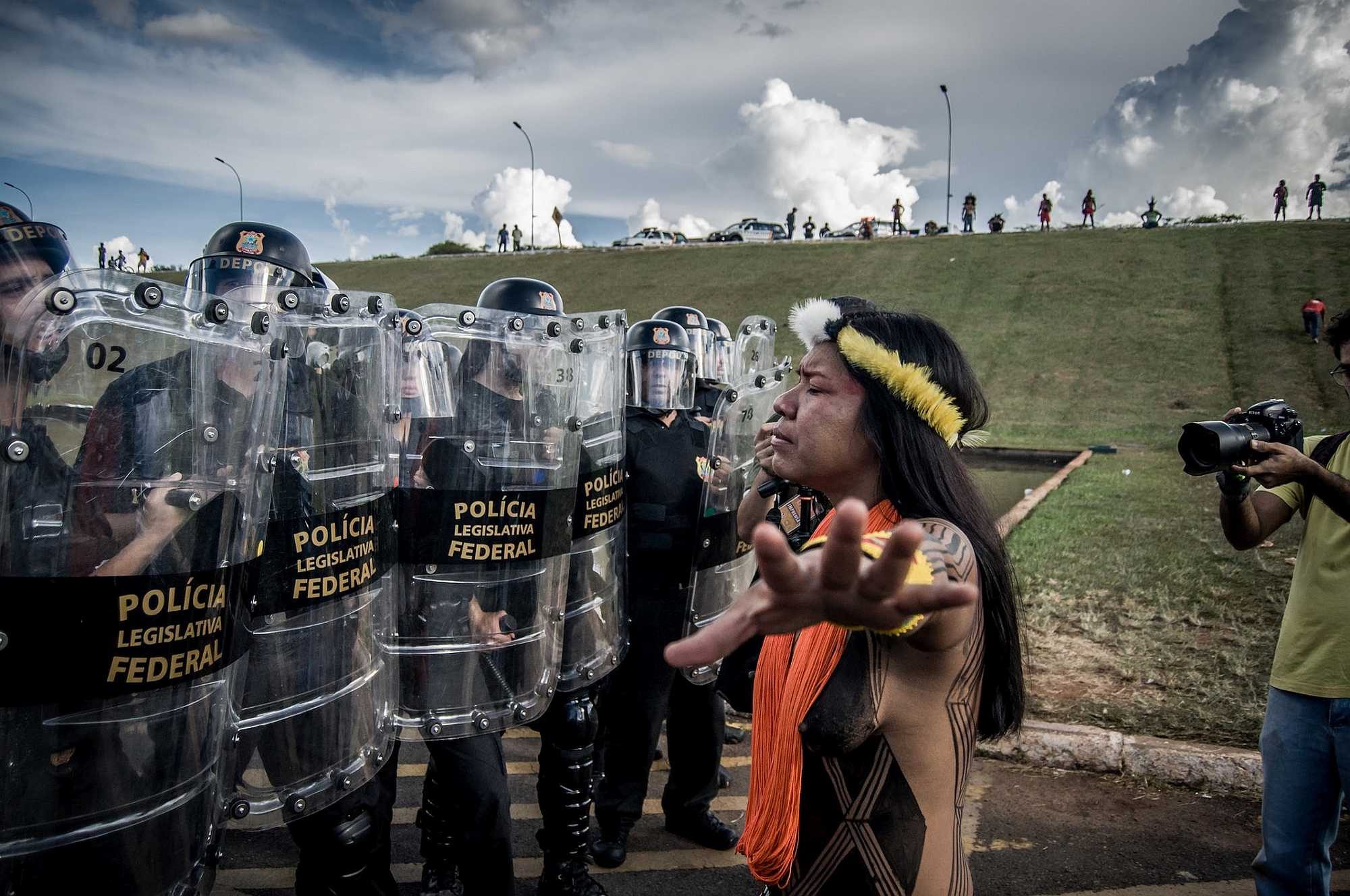If you ask Google to translate the Portuguese word “temer”, the result is “to fear”. Temer is the name of the current president of Brazil. And fear is what many Brazilians have been feeling lately.
Temer took office after the controversial impeachment process that ousted former President Dilma Rousseff at the end of August 2016. Now, less than a year later, Temer is not only deeply involved in corruption scandals worthy of a TV series, he’s also slashing human rights and environmental protections across Brazil.
Even though Brazil is part of the Paris agreement, the rate of deforestation in the Brazilian Amazon has risen 29% last year. But instead of strengthening environmental protections, Temer chose a different path.
Only a few months after taking office, Temer himself wrote two proposals to reduce protection of 600,000 hectares of the forest in the state of Pará – an area more than half the size of Jamaica. He’s due to sign these bills any day now, and they are just the beginning.
A very conservative Congress and Senate is not only pushing for similar changes to happen in other protected areas in the state of Amazonas, but also discussing ways to make it easier to build big infrastructure projects in the region, such as hydro dams, roads and ports – all of which would cause more deforestation.
President Temer and his allies in the agribusiness lobby are a direct threat not only to the climate and local biodiversity, but also to communities and Indigenous People whose livelihoods depend on the Amazon rainforest.
Indigenous People are fighting for their rights all around the world, including Brazil. The country has a long history of violence against Indigenous communities, with dozens of Indigenous People being injured or killed in conflicts with farmers and ranchers over land each year. Violence against Indigenous People has increased exponentially in recent months because of land disputes with farmers.
Less than two months ago, more than 3,000 Indigenous People marched in Brasília, the capital of Brazil to protest the rising violence and to demand rights to their ancestral lands. Instead of being received with respect, they were met with police violence, only reaffirming that Temer’s government is not open to dialogue with Indigenous People.
The Right to Free Speech
Amongst all this outrageous news, Temer is also heavily involved in corruption scandals. In May, shocking accusations were published by the Brazilian media showing the involvement of president in bribery. Still Temer is refusing to resign as the political crisis deepens.
With approval rates falling into single digits, it is clear that Brazil’s population think their president is not fit to lead the country. Protests are on the rise across Brazil, and citizens are demanding new presidential elections.
In response, Temer is using violence to repress the demonstrations. He has even asked for federal troops to intervene in protests. Though this decision was revoked, it sets the tone to how Temer is dealing with public opposition surrounding his office.
Political representatives start failing when they start working for the interests of corporations and themselves instead of the public.
Greenpeace Brazil believes that only new direct elections can protect the country’s democracy and preserve the environment and social rights.
Diego Gonzaga is a content editor for Greenpeace USA.

